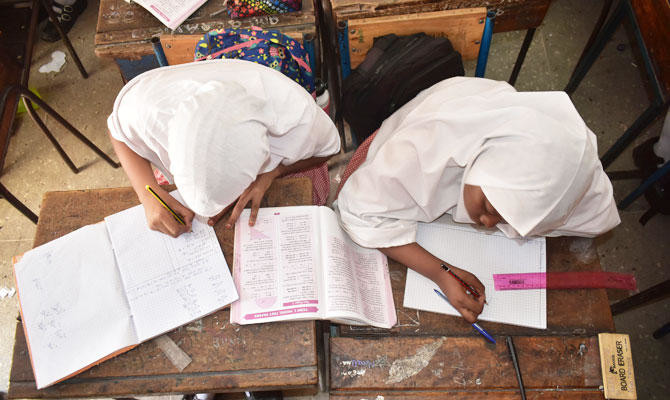A quiet debate and struggle is unfolding in our schools, a conflict not based on curriculum or capitation, but on identity. The issue of whether Muslim girls should be allowed to wear the hijab in learning institutions is not just any normal debate over dress code, it is a vivid reflection on who we are as a nation, and the true scope of our constitutional reach while keeping in mind our country’s diverse religious background.

Far from being a cultural attire, the hijab carries significant religious and spiritual weight among our Muslim sisters. The hijab represents modesty, dignity, and obedience. For Muslim girls, wearing the hijab is not just a choice one makes, in fact it is a moral obligation based in sacred scripture. Denying this right is like stripping away a portion of their identity and even worse, their humanity.
Celebrated for its progressive stance on human rights, article 32 of the Kenya’s 2010 Constitution guaranteed the freedom of religion, including the right to manifest belief through practice. Conversely, in some schools Muslim girls are asked to remove their hijabs. Presented with tough decisions between adhering to the spiritual tenets or pursuing education, many helpless students chose to “give up” their hijabs.
ALSO READ:
MP urges government to release capitation on time to rescue schools from collapsing
Though we must appreciate the aspect of uniformity, we must not compromise matters humanity and identity. These policies don’t just challenge religious expression; they violate the very rights enshrined in the constitution.
This contradiction reveals a troubling discord, while the law protects religious freedom, enforcers often falter. Girls who wear hijabs face discrimination, ridicule, or even worse denial of access to education, this causes psychological harm or social exclusion in some cases. Learning institutions which ought to be havens of learning and inclusivity are slowly becoming agents of cultural erasure.
Beyond constitutional law, this issue taps into deeper ethical questions. What message do we send when we prioritize uniformity over inclusivity? When policy overlaps compassion? By enforcing restrictive dress codes without cultural sensitivity, we tell young girls that their faith is unwelcome in spaces meant to nurture their growth.
The bottom line is, what message do we send when we prioritize uniformity over inclusivity? This issue taps into deeper ethical questions, by enforcing restrictive dress codes without bearing in mind the cultural and religious sensitivity.
ALSO READ:
To access education without compromising on personal belief, judicial interpretation should step in to resolve this tension as our courts have the power affirm the rights of every Kenyan regardless of their religion. Its high time that a legal ruling to recognize the hijab as a protected religious expression be considered, least we risk losing our innocent girls to religious extremism as a result of our “rigidity”.
For clarity, the hijab in schools isn’t about favoring one religion over another, it is more of a human rights question while appreciating our diversity. By defending the hijab, we defend the fact that every citizen’s identity must be respected, not just tolerated.
Inclusion starts not in courtrooms but in classrooms, so what message are we communicating when other pupils are barred from accessing the same classes because of an hijab? Yet we call ou country a “modern democracy”
This discussion shows us whether we are serious about justice, whether our laws protect the vulnerable, and if our nation can hold the diverse identities literally in one hand. So let’s not fail this test because of uniformity.
This article draws on findings from Ibrahim Hish Adan’s 2025 research report- The rights of Muslim girls to wear hijab in education institution: legal, religious and social perspectives
Re-write By Masaki Enock
You can also follow our social media pages on Twitter: Education News KE and Facebook: Education News Newspaper for timely updates.
>>> Click here to stay up-to-date with trending regional stories
>>> Click here to read more informed opinions on the country’s education landscape






